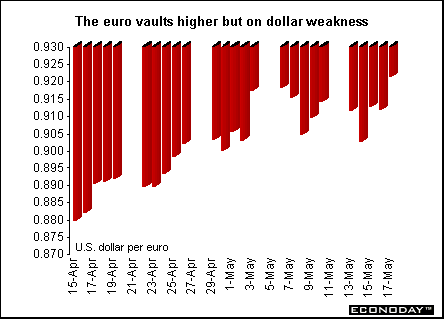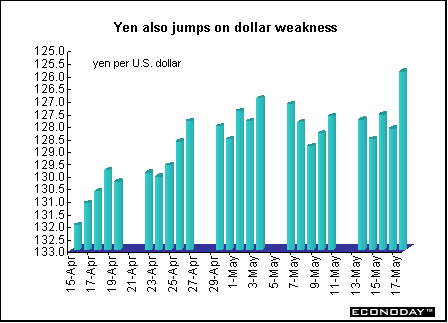CurrenciesA strong dollar has suited almost everyone in recent years. Europe and Japan have, in effect, been able to export their deflationary pressures to the United States, which has been strong enough to absorb them. But if the U.S. dollar were to decline sharply, that would put severe pressure on European and Asian exporters and therefore on global growth, given that the United States buys nearly a fifth of the world's exports. A falling dollar would create a dilemma for the Federal Reserve. It would add to inflationary pressures on the U.S. economy. But increasing interest rates to choke off inflation would not necessarily support the dollar either. Currency movements right now seem to be driven more by economic growth expectations than by yield support. And higher interest rates would only increase the strain on the rest of the world economy. Market players remained dollar-negative throughout the week. Once again, U.S. economic news proved to be more growth positive than news from elsewhere, but that didn’t seem to matter.  Just as the dollar had a Teflon quality to it in prior months, the euro now seems to have a similar sheen. Just last week, the euro brushed off higher-than-expected German wage settlements, high inflation data, and uncertainty ahead of upcoming elections in France (June) and Germany (September). An increasing number of economists now hold the view that the Japanese economy, due to recent improvements in exports along with production indicators, hit bottom in the January-through-March quarter. But the prospects of a self-sustaining economic recovery are still slim, because domestic demand remains weak. Rather the economy is benefiting from recoveries of the U.S. and Asian economies, which have boosted Japanese exports. Since the 1990s, economic downturns have tended to be deep, while any improvements have been modest and short-lived. Current conditions make it difficult to rule out the possibility that the economy will sputter again before it can stage a forceful recovery.  |
![[Back To Archive]](../../../images/backtoarchive.gif)